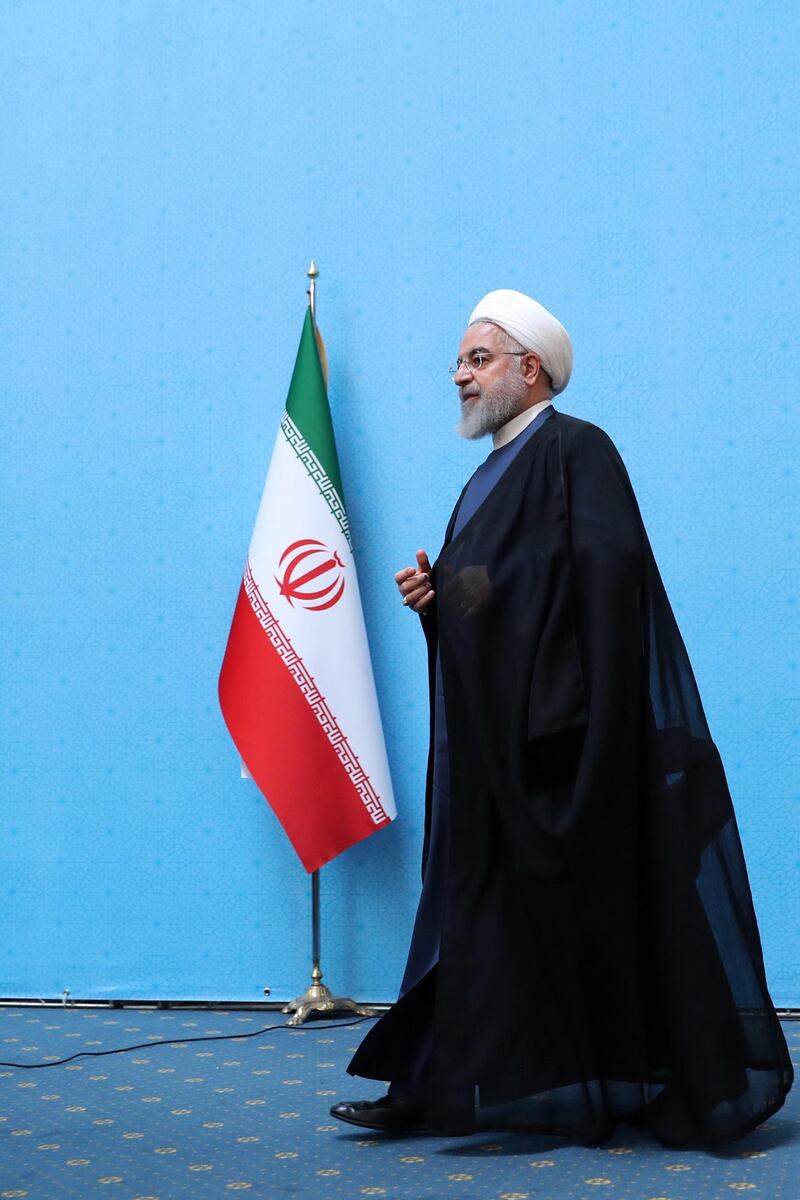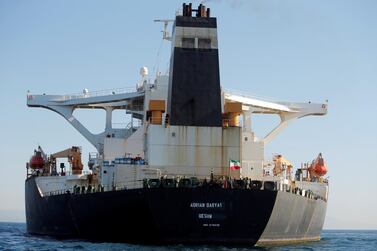Amid the pressing of the flesh and photo opportunities in Biarritz, something extraordinary happened. First, Iranian Foreign Minister Javad Zarif, under sanctions from the US, made a surprise appearance at the G7 summit, on invitation from its host, French President Emmanuel Macron. Then US President Donald Trump and his Iranian counterpart Hassan Rouhani indicated they would be willing to talk.
The unexpected defrosting of relations comes amid heightened tension in the region, as Iranian targets in Iraq, Lebanon and Syria have come under attack from Israel, and while the US has been frustrated in its attempts to hold Tehran to account by European Union apathy. Despite an American bid to block the Syria-bound Grace 1 oil tanker, it was released, the whereabouts of its $130 million cargo now unknown. The region now stands on the brink of a dangerous escalation of violence.
In that light, Mr Trump’s comment at the three-day summit in France that he was open to talks with Iran “if the circumstances were correct” was welcome. Should those talks happen, they could be an opportunity for the two countries to renegotiate the flawed 2015 nuclear deal. Mr Macron also indicated he was willing to mediate. But despite French efforts and Mr Trump’s gesture, hope for a potential de-escalation has been dampened somewhat as Mr Rouhani said his country would only agree to sit down at the negotiating table if the US lifted all sanctions.
The idea that the US should lift sanctions before Tehran has made any real concessions is not only unrealistic; it also exposes the twin-track behaviour of the regime, charming and eloquent in the form of Mr Zarif on the world stage, but with nefarious intentions behind the scenes. Ever since Mr Trump withdrew from the nuclear deal last year, Iran has simultaneously claimed it is willing to go down the diplomatic route while developing its missile programme and keeping up its support for armed proxies across the region. The Grace 1 tanker, for example, had been held in Gibraltar on suspicion of carrying oil to Syria in breach of EU sanctions but was eventually released. It has since gone off its expected course and the whereabouts of its two billion gallons of oil are unknown after the ship was sold to an unknown buyer.
Diplomacy will be key to de-escalation but Iran has repeatedly stalled and played for time. If negotiations take place between the US and Iran, the same mistakes of 2015 cannot be repeated. In addition to capping Iran’s nuclear capabilities, a successful deal must put an end to Tehran’s uranium enrichment and ballistic missile armament. Only then can its destabilising influence on the region be halted, giving fragile Arab nations such as Lebanon and Iraq a chance at building strong states that can fend off foreign aggression.






